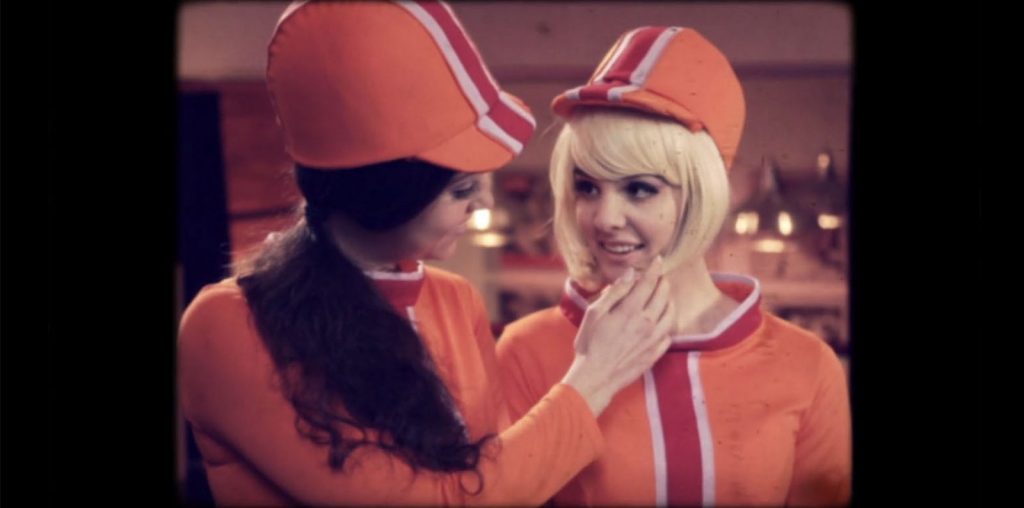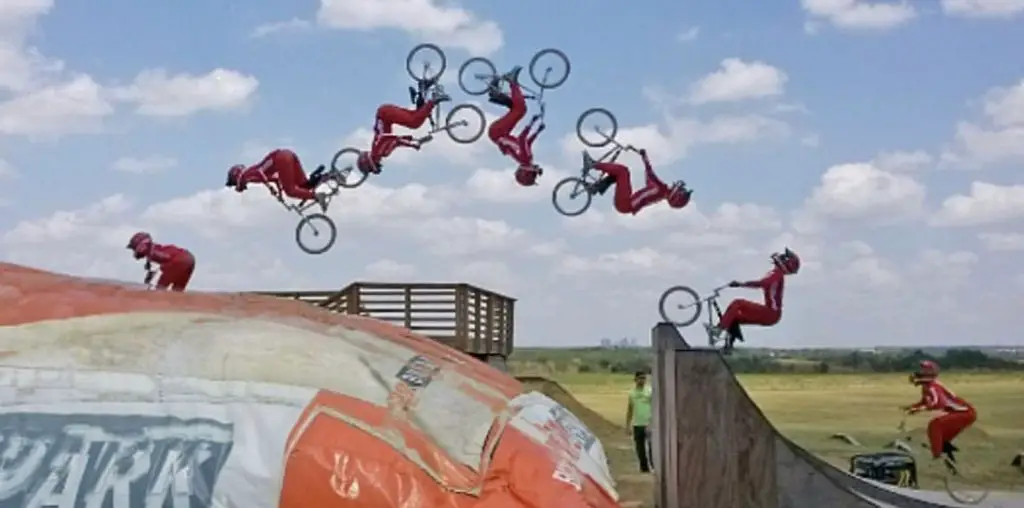
A few months ago, I was having dinner at home when the telephone began to ring. I was doubly annoyed because I hate having my meals interrupted by telephone calls and because the only time I ever seem to get calls at home is when I am eating dinner. The caller identified himself as one T.K. Reilly, who lived a few minutes from me in Bridgeport, Connecticut.
Why is T.K. Reilly calling me? Well, he read an interview I did with a local newspaper to hype my book “Independent Film Distribution” – and he went out and bought the book based on that interview. He praised my book and then began to tell me about a feature film he recently completed called “Bobby Dogs.”
“Bobby Dogs” is a sincere drama about a recovering alcoholic who finds a new life as the owner of a hot dog stand. The film is blessed with a stunning performance by Mike Boland, who invests the role with a degree of humanity and passion that is uncommon for today’s cinema.
Reilly kept insisting that he wanted to buy me coffee, which I politely declined (it’s an ethical thing – I am a coffee addict and I especially love when people buy it for me). However, I wanted to learn more about the making of “Bobby Dogs” – hence, this interview.
What was the genesis of “Bobby Dogs”?
In 2005, we shot a short called the “Barbershop League.” Though Mike Boland had a minor role in the film, we recognized that Mike was a talented and passionate actor well suited for a full feature. Before the short was finished, I approached Mike and told him that I had an idea for down-on-their-luck, come from behind film. Before I finished the pitch Mike interrupted and said “done, when do we start?”
I started on the “Bobby Dogs” script and met Mike every Sunday evening at Las Vetas, a coffee shop in Fairfield, Connecticut. The original script did not focus on the lead character battling alcoholism. The script was okay, but not good enough to invest the time and energy in a feature. One day, I approached Mike and asked him if he thought it would make sense to revise the script so the main character’s challenge was battling alcoholism. Mike said he could “hit the character out of the ball park.”
There have been many films about down-on-their-luck people finding a second chance at life. How did you strive to make “Bobby Dogs” different from other films that cover similar ground?
I “studied” many of the well known films about alcoholism such as “Days of Wine and Roses,” “28 Days,” “The Long Weekend.” They all are good but from the beginning, we wanted to make this a positive story that had an uplifiting ending. Most of the other films on the subject had darker endings so we felt we’d stand out from the pack in this regard.
We also wanted to stress that beating alcoholism (as well as all other difficulties in life) requires support from friends and family – and in fact – it is essential to beat the odds. A lot of time was spent on trying to get the feel of the recovery meetings right; the religious overtones, personal strife, peer community support, etc. Many people who are in recovery felt we pulled it off. I hope we did.
The last thing which we felt would set “Bobby Dogs” apart was the injection of humor in the midst of the sadness. The costume scenes and “marshmallow shooters” scenes injected light hearted humor to offset the ‘nightmare’ , ‘mirror’ and ‘rejection’ scenes. We aimed for a roller coaster of emotions.
Where did you find Mike Boland and how did you get that amazing performance out of him?
We attract our actors basically through word of mouth. We describe Brooklawn Productions, the little indie company that produced “Bobby Dogs” as a ‘softball league for film enthusiasts.’ What the heck does that mean? We basically all have day jobs outside the film industry but are really passionate about filmmaking. Out of necessity since we shoot at odd times and over longer periods of time than most films. Because we’ve completed what we set out to do I think we developed a credibility with local actors. We have had over 300 audition for our films.
I love to work with actors who participate in professional acting classes. They are passionate about acting and, like us, will suffer the lack of Hollywood conveniences and bad food that indie films routinely provide. (We used an old hot dog truck for our dressing room!)
Mike and the other main actors, Dawn McGee and Josh Eaddy all are exceptionally nice people off the screen and work very hard at their profession. They are exactly the type of actors who make producing an indie feature film worthwhile. Specifically, Mike is a local guy who will make it big (we hope he remembers us!) In “Bobby Dogs” we utilized local (meaning Connecticut) actors as well as a number of very fine actors from New York City. I worked very closely with Mike and Mike was totally invested in Bobby Dogs from day one. We rehearsed intensely and the process was open and collaborative.
As way of background, Mike is a recovering alcoholic who has experienced all the aspects of the disease. Mike is rightly proud of his recovery and embraced the character from the moment I began revising the script. Interestingly, after we completed shooting, other actors confided in me that they also had been in recovery for a long time. Perhaps their personal experience added realism to our film.
What have been the challenges of getting your film before an audience? And where has the film played to date?
We arranged for “Bobby Dogs” to be screened in Fairfield, Connecticut, in June 2007 for one week straight. Over 1400 saw the film and the feedback was extremely gratifying.
After the ‘premiere’ screening, I became a stalker of sorts. The theatre was playing both “Bobby Dogs” and “The Namesake.” As people were leaving “Bobby Dogs” I would pretend to be deciding on which film to see and I would ask them what they thought of “Bobby Dogs.” They didn’t know me and it was the only way to get unvarnished feedback. The first woman I asked was about 55 years old. She put her arms on mine and told me that “she loved it.” I felt like I was walking on air. Like a little kid, I immediately called Mike Boland and told him that our movie had legs.
Another woman who saw “Bobby Dogs” was Dolly Curtis. I never knew Dolly but she approached me and told me how much the film meant to her. Lucky for us, Dolly has a widely viewed cable show and has just produced a 28 minute segment on the “Making of Bobby Dogs”. The cable show will be start airing in August and run through the Fall. Hopefully the exposure will generate opportunities for us.
We’ve also arranged for local screenings in libraries and would show our film at any and all arts cinemas. We’re trying our hands at festivals but frankly, some of them have the smell of scams. You often get the feeling that no one even watches your film and you wasted $50 to submit it. Can any group seriously review 3000 submissions? There needs to be a “consumer reports” on film festivals. (Have I ranted enough?)
I guess sometimes when I try to find an audience for our film, I feel like a baby duckling squawking away for a drop of milk. Who knows if we’ll be the lucky ones to get the milk? However, the bottom line is that we will market “Bobby Dogs” every way possible, since, in our bones, we have a good film. We may also utilize the online sites to show our film via streaming video.
What are your next projects?
We have four scripts that are nearly complete. Why four? We build our films around available talent and available locations. For example, after auditioning Michael Nastu (Pepe) I developed the character of Pepe, the marshmallow shooter. Michael’s smiling and rosy ‘rubber face’ had to be in the film. We plan to hold auditions and then shoot the one (or more) which we feel we have the best talent. Right now, we’re focusing on quirky and zany films, though I would love to shoot a horror film as well.

